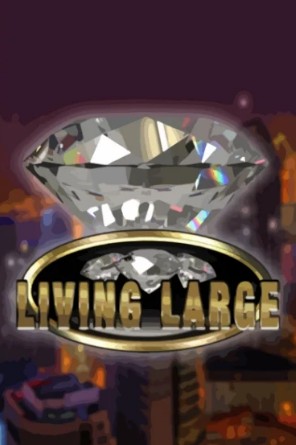When they were last legal, a Virginia economist has compiled hard data that shows which neighborhoods had the highest concentrations of gaming devices – called “skillgames” by some or “neighborhood slots machines” by others – when they were first legal. You will not be surprised by the results.
Fletcher Mangum, of Mangum Economics located in Henrico County, was hired by a group called Virginians Against Neighborhood Slot Machines. The group released its report on Thursday as part their efforts to stop bills that would authorize gaming devices. This press release was released along with the report.
He was an economist and reported that the money spent on these machines could have been used to buy useful items.
Most likely true. This is true, but only if the money doesn’t go into other forms of legalized gambling, such as the Virginia Lottery or sports betting.
Mangum cites also national statistics which show that the convenience store industry is booming in the U.S., and without these extra revenues the industry may not survive. These are the most likely locations for these machines along with truck stop and watering hole.
The bill was passed by the General Assembly in 2024, but Governor Glenn Youngkin vetoed it. The coalition of advocates formed at that time included the Thomas Jefferson Institute for Public Policy and Family Foundation as well as a liberal group Freedom Virginia and a number of competing gambling interests. Other words, it’s the usual strange bedfellows in legislative life.
As the General Assembly nears its midpoint, at least two Republican-sponsored legislations to revive the industry are still alive. Senate Bill 1302 as well as Senate Bill 1222 allow for the installation of far more machines compared to the 2024 legislation that was vetoed. They also impose a lower tax rate on owners and operators compared to the previous bill. If all 30,000 machines that are allowed to be installed pay the $1200 monthly fee, this could amount to more than $400,000,000 per year that is shared between the state and the localities.
The state’s fiscal impact analysis also predicts that the Lottery will lose a lot of revenue, and the casino revenues will be reduced by a smaller amount. Mangum also makes the point that the Lottery will lose sales and profit and cites Pennsylvania as having directly measured the negative impacts when these machines proliferated in Pennsylvania.
Virginia’s two bills can still be amended. The amount of revenue to be received by the state may change. The firm that manufactures the machines, pace-o-matic is behind the main force. It is also a major player on the Virginia political scene and has its own large team of Lobbyists.
Since they were first permitted in 2017, these machines have been allowed and banned in Virginia. They were banned by the 2020 General Assembly, but during the Covid-19 Pandemic, they were again allowed to help businesses supplement their income. After a court ruling, the ban is back in effect.
During a period of about a year, the state collected data on thousands gaming machines. This included their locations, number of machines and gross revenue. It also included prize money and the amount of money that people lost. Mangum’s analysis was based on the data from that year, which ended in 2021. The total amount wagered during the period was $2.2 Billion, of which just under $507 million was lost by bettors.
Zip code could be used to sort the state data collected during that short period of tracking. Machines were located more often in neighborhoods with lower incomes. Mangum identified Virginia Beach as having the most machines, Richmond as the second-highest and Fairfax the third-highest. They all had the lowest or lowest incomes, the lowest housing values and the highest or highest poverty rates.
In Richmond, most of the machines were located in the East End as well as south of the river on U.S. Route 1 Virginia Beach, on the other hand, had a lower concentration of machines in the zip code which includes the beachfront, and therefore most of the tourist activity. It was lower than the five zip codes of the city.
Mangum was able to calculate an opportunity cost using the $507 million that players lost at outlets tracked during this one-year period of transparency. He calculated what would have happened if that money had been spent in other ways, such as on meals at restaurants, fitness and sports or even right there in a convenience store.
If the $506.7 million lost in wagering had been spent in Virginia’s economy in other ways, this could have created 9,214 direct jobs and $208.6 millions in labor income.
It could have. It is likely that the money was spent on other forms of gambling, which is why Mangum was hired by the horse racing and casino interests. They do not want their money to be spent on clothing, food or retirement funds.
The majority of these same places also sell scratchers and Lottery Tickets. Mangum included a comparison between the financial promises made to the state by the gaming machines under the failed bill 2024 and the impact on money spent instead for the Lottery. He cites the gross receipts after prize money has been paid. The report states:
The Virginia Lottery dedicates $72.60 per $100 gross receipts to education funding. With skill games, $18.75 for every $100 gross receipts is dedicated to funding.
The Virginia Lottery pays retailers that host Lottery sales approximately $11.50 of every $100 gross revenue from gaming. However, with skill games, operators and companies who license and host these games receive $75.00 of every $100 gross revenue.
He did not make a comparable comparison between the gross receipts from casinos and the Lottery.
NEWSLETTER SIGNUP
Subscribe to our newsletter! Get updates on all the latest news in Virginia.


